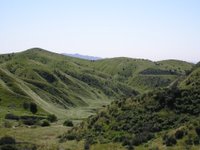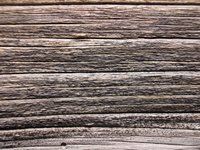Dark Nimbus
 I wish you would move to forget my inquiry after you to your mother. You seem intent on reading in it only trespass of your confidence, instead of the nobility of motives I profess. It is as if you would make of me an enemy, perhaps so that we might explore another, more ombrous humour than friendship in these letters. Still, antagonism is a friendship of sorts. Perhaps only one side of the same coin...
I wish you would move to forget my inquiry after you to your mother. You seem intent on reading in it only trespass of your confidence, instead of the nobility of motives I profess. It is as if you would make of me an enemy, perhaps so that we might explore another, more ombrous humour than friendship in these letters. Still, antagonism is a friendship of sorts. Perhaps only one side of the same coin...Disregard. I was lost in some darker reverie, and I rarely allow myself to so wander. I think I am not myself. Allow me to recast a lighter nimbus...
Ah, the stage. It is your arena, not mine, I suppose. Though it intrigues me to wonder how my life might be translated into art, drama, verse, and then exit the mouths of those skilled in rhetoric (or in imitating it). Delightful. How would I be cast, I wonder? Would you be able to find a player with the right turn of his moustaches?
You have elicited my sympathies in this matter, for I do think that if my letters can transport some of La Mancha's sunshine into the dark dales of Denmark, then some good will come of it. I ask only to be left out of the composition. I think it should be difficult to live nobly, all the time thinking of my audience. Valor of spirit, it seems to me, comes from the knowledge that only conscience sees, and that it is never blind. Instead of composing for you, I will package vignettes of my life for your treatment. Do with them as you will.
On the subject of my stories: Do you remember Pancho Villa's story of the Ogre? That fool lives in hyperbole. It was hardly a goblin. I slew the vile thing with a single stroke. It seemed a meagre vengeance for the honest magician. I must remind Pancho to be more realistic.
Could I call on your library for something? There is a baron nearby where Pancho and I are camped, surname Odvallo. His nature is so composite as to be inscrutable. He sleeps both during the night and day, and leaves his chambers only during dawn and dusk. His left eye is pure white, with no pupil, while his right is large and dark. The hair on his head is bright crimson, but that on his chin is sooty. He walks with a cane that is solid ivory from the Orient, carved into the horrible figure of a snarling beast with green jewels set into the sockets of its gleaming skull. Each of his features speaks something contradictory, to the effect that is possible to say any one thing about him without having to say the opposite at the same time, and so the sum is that one says nothing at all.
In addition, accompanying him on his interstitial perambulations about his house is a sort of minister of the occult, a dark-cloaked figure standing stooped at only a handfull of cubits tall, and shuffling with a slow gait always a few steps behind his lord, moving his lips as if he were speaking to unseen spirits, but in a voice so low that none can hear him. His fingers trace the contours of an invisible icon interminably.
Is it possible that the genealogies of your collection (or your father's) hold some key to this man's heritage and the source of his title? Or perhaps a bit of lore on the subject of his servant. I seek some advantage, I have no shame in telling you. He is sure to be engaged in something sinister, and I wish only to be prepared when I am forced to resolve his monstrous dichotomies for the good of humanity.
Always in humble service and friendship
Don Quixote De La Mancha
 Friendship is not fragile. Illusions are; affectations are; machinations and schemes and intrigues and self-interest are. But true affiliation, wherever it occurs, is impervious. So much so as to be a true wonder, persisting through time and trial as a lump of coal does in the womb of the earth, only later to be unearthed, brushed off, and discovered transfigured, transformed into the brightest of jewels.
Friendship is not fragile. Illusions are; affectations are; machinations and schemes and intrigues and self-interest are. But true affiliation, wherever it occurs, is impervious. So much so as to be a true wonder, persisting through time and trial as a lump of coal does in the womb of the earth, only later to be unearthed, brushed off, and discovered transfigured, transformed into the brightest of jewels. 




